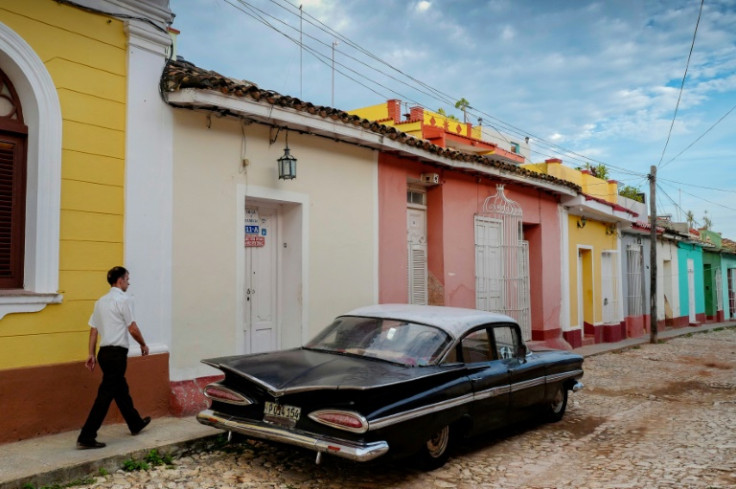
Cuba's population dropped by almost a fifth between 2022 and 2023, largely as a result of the country's deepening economic crisis, a local demographer has concluded.
Juan Carlos Albizu-Campos determined the country's current population now stands at 8.62 million. He did so after extrapolating the amount of Cubans who have arrived in the U.S. between October 2021 and April 2024, as he says historical trends show such migration accounts for a third of the total.
The government said 11.11 million people lived in Cuba in December 2021, but the demographer said the figure is "fake." Based on electoral registers between 2013 and 2023, he says, the population was 10.48 million back then.
Overall, over 738,000 people in Cuba left for the U.S. during the period, based on calculations combining visas granted, humanitarian parole cases and apprehensions following unlawful crossings. Based on Albizu-Campos' calculations, 1.79 million people left the country between 2022 and 2023, an unprecedented figure in the country's recent history.
The figure largely exceeds those of other crises. Since the 1959 revolution, historic events such as the "freedom flights," the "Mariel boatlift" and the "rafter crisis," about 620,000 people had left the country, Spanish news agency EFE reported.
Officials have consistently blamed the U.S.' decades-long blockade on the island for the economic crisis, with Cuban Deputy Foreign Minister Carlos Fernández de Cossio recently saying the country is seeking to "destroy" its economy through sanctions.
"You can speak about other factors, but if you have a consistent policy by the most powerful economy in the world to try to destroy the livelihood of a whole population, 11 million Cubans, it is logical to expect people, a segment of the population, to want to leave the country," he said.
The U.S., in contrast, has argued that the situation is a result of economic mismanagement, especially considering that sanctions have been in place for decades and the Cuban crisis has increased its decay over the past few years.
Recent events are not showing the crisis will end any time soon. The government reimposed earlier this month price caps on some imported foods, heeding warnings from businessmen that this would lead to the halting of their activities. Chicken, powdered milk, pasta and other essentials are among the goods reached by the measure.
Specifically, it says that the price of chicken parts sold to consumers cannot be higher than 680 Cuban pesos per kilogram, even though wholesale prices are over 700 pesos and a kilogram of chicken thighs can cost over 900 in a private store.
In a meeting with government officials in June, businessmen from the private sector said the price didn't take into account the many taxes and fees they must pay to import goods and resisted the caps.
Officials did suspend custom tariffs for six products, but businessmen said it wasn't enough and warned the measure will exacerbate food shortages. Even with the caps, prices are above what most Cubans earn in the island, considering the average state salary is about 4,000 Cuban pesos, or around $11.
© 2024 Latin Times. All rights reserved. Do not reproduce without permission.







